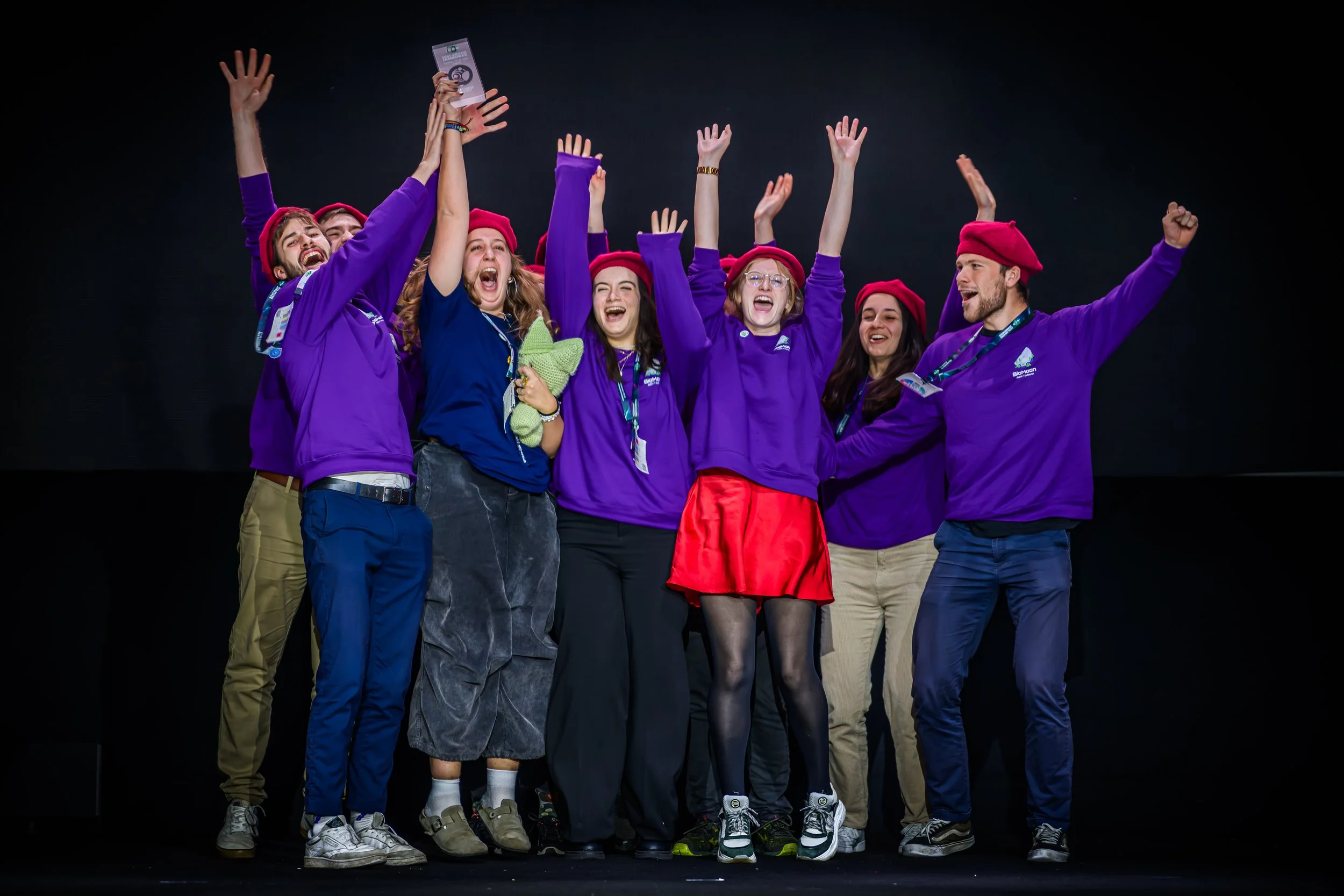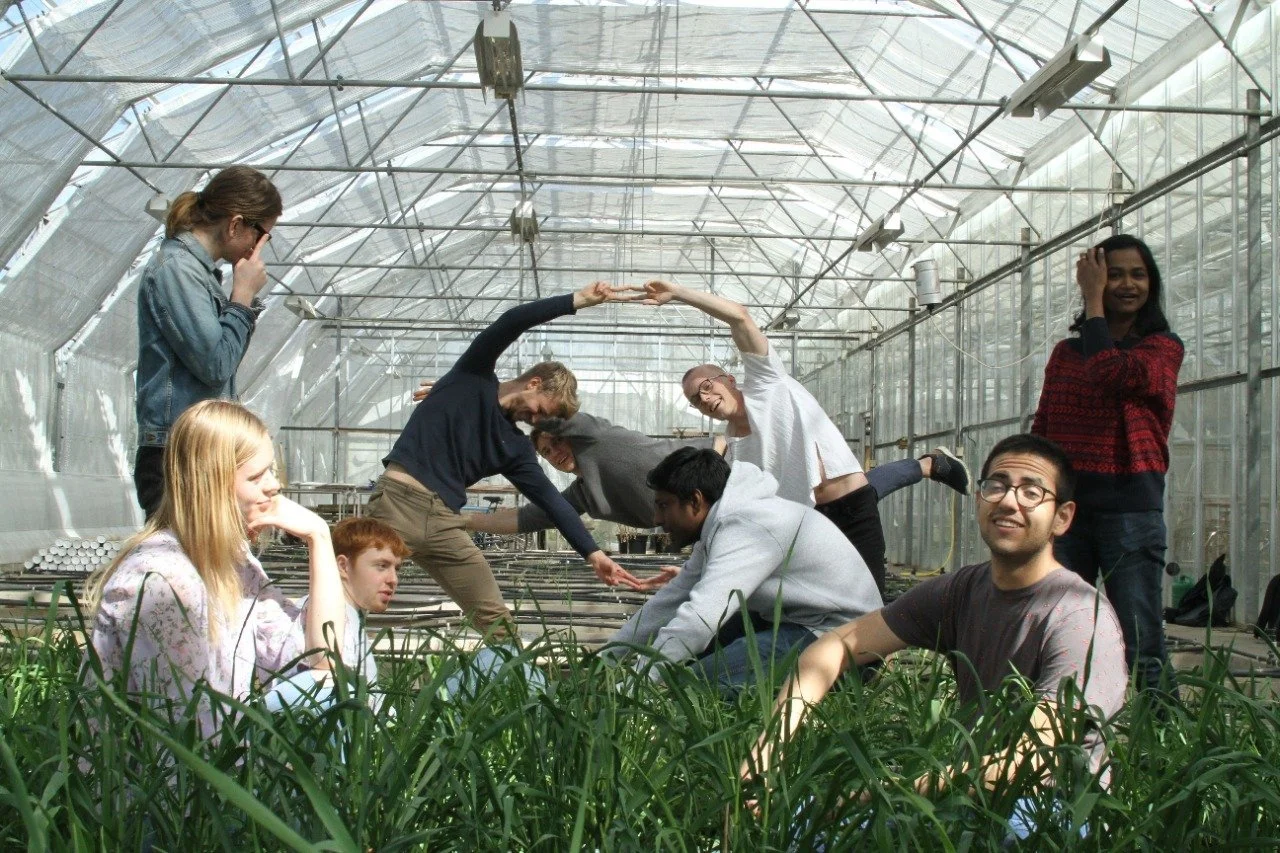All tagged Project Inspiration
Art and design can enable new possibilities for the future of synthetic biology. How could your team unleash its creativity in advancing synthetic biology innovations? What is your vision for creating new synthetic biology solutions with art and design?
2024 witnessed a number of space happenings – from meteor showers, supermoons and the heightened visibility of the aurora borealis, to colossal rocket launches, planetary missions, the first commercial spacewalk and the first sample return from the lunar far side. Yet, among the most exciting space happenings were the accomplishments of the iGEM Space Initiative.
Imagine a future where most cancers are prevented or even cured, where there is universal access to early detection and treatment, and where most (all?) cancer patients can expect to live cancer-free without trading the quality of life for length of life. At iGEM, teams are working to create such a future using the tools of synthetic biology. Check out these examples.
Due to their inherent safety, simplicity and portability , cell-free systems have become an increasingly important tool in iGEM and synthetic biology more broadly.
Our world has entered a new era of infectious diseases, where emerging, re-emerging, and endemic pathogens spread quickly, aided by increased international air travel and global warming. At iGEM, teams are tackling infectious diseases by using the tools of synthetic biology to reduce disease transmission, prevent future epidemics and pandemics, and save lives.
The future of the fashion and cosmetics industries may well lie in the hands of the future leaders of synthetic biology. These consumer-driven industries touch the lives of almost everyone on earth, but they also use massive amounts of raw materials and have an immense negative impact on the environment. At iGEM, teams are using synthetic biology to help move the fashion and cosmetics industries into a new, more sustainable, and animal cruelty-free era. Here are just a few examples of iGEM team projects that could usher in the next revolution in fashion and cosmetics.
Rare Disease Day is observed on the last day of February to raise awareness about rare diseases and improve access to treatment and medical representation. This article covers the barriers in therapy progress, communication and how are iGEM teams tackling rare diseases with synthetic biology
Take a looking how iGEM Teams from around the world are restoring Earth's health applying the tools and techniques of synthetic biology for Bioremediation.
Teams that participate in the iGEM Competition are pioneers of synthetic biology, and these grants empower teams to secure funding for impactful projects in responding to climate change and biodiversity loss, enhancing human health, improving agriculture production and food security, scaling up the sustainable industrial production, and many other critical challenges.
Software plays a transformative role in driving advances in synthetic biology. From designing biological systems and automating lab equipment, to managing collaborations and analyzing vast amounts of data, software underpins many of the essential tasks in making biology easier to engineer.
The iGEM team wiki is the primary means by which teams communicate their entire project to the world. The wiki is essentially a website that provides background information, describes project goals, and shows experimental results. Like other forms of scientific publication, the wiki also includes references to acknowledge the work of previous iGEM teams and other research groups that have helped inform the current project. Importantly, the team wiki has been a key deliverable since iGEM first became an international competition in 2005, and is archived so it can be accessed by future teams and iGEM community members.
While all iGEM teams push the boundaries of synthetic biology, teams who undertake plant projects must overcome a challenge that is particular to plants – namely, that plants take a long time to grow. One reason iGEM teams are successful in pioneering plant synthetic biology is because the teams that have come before have expended effort to get plants to grow within the timeframe of an iGEM Competition season. In honor of the 20th year of iGEM, we thought we’d take a look back on the achievements of some of the teams that have pioneered plant synthetic biology.
Hardware, Software, Wetware – all are encompassed within the Design-Build-Test-Learn cycle of synthetic biology. In honor of 20 years of iGEM, we’d like to feature the Hardware developed by iGEM teams.
Neurodegenerative diseases comprise a broad spectrum of disorders resulting from the gradual deterioration of cells and connections within the nervous system, crucial for functions such as movement, coordination, strength, sensation, and cognition. Explore how iGEM team’s have tackled the disease through their innovative diagnostic and therapeutic solutions.
Synthetic biology holds tremendous promise for addressing global challenges, but like all powerful technologies, there also are risks of accidental or deliberate misuse that could cause harm. In honor of the 20th year of iGEM, I’d like to take a look back on some of the highlights of iGEM’s history in building a strong culture of responsibility for biosafety and biosecurity.
Twenty years ago, scientists were using an ad hoc approach to assemble genetic constructs, which required a lot of time and did not always work as anticipated. Tom Knight, an engineer by training, thought that applying standard engineering mechanisms could make the assembly of genetic constructs more reliable. And so, in 2003, Tom proposed an assembly method for standard biological parts, or “BioBricks”.
We’re 250 years into the industrial revolution, which is about being good at energy. We’re 70 years into the computer revolution, which is about being good at information. Now we’re at the beginning of the next revolution, which is about being good at matter, and the best tool for that is biology.
Industrial scale-up helps bridge the gap between laboratory experiments and real-world implementation by addressing technical, economic, and practical challenges. Because industrial scale-up will require significant innovations if synthetic biology is to continue being a game-changing industry, the iGEM Competition has an entire Village dedicated to the challenges of industrial scale-up.
This year, iGEM is introducing three new Villages – Agriculture, Bioremediation, and Space. Though iGEM teams have worked on projects in these areas for many years, this will be the first time teams will be gathered together within these official Villages.
Ever since I worked on the Astroshield project with my teammates on the Sao_Carlos-Brazil 2019 iGEM team, I’ve been fascinated with how synthetic biology applied to space exploration can yield important insights for making life better here on Earth.





















